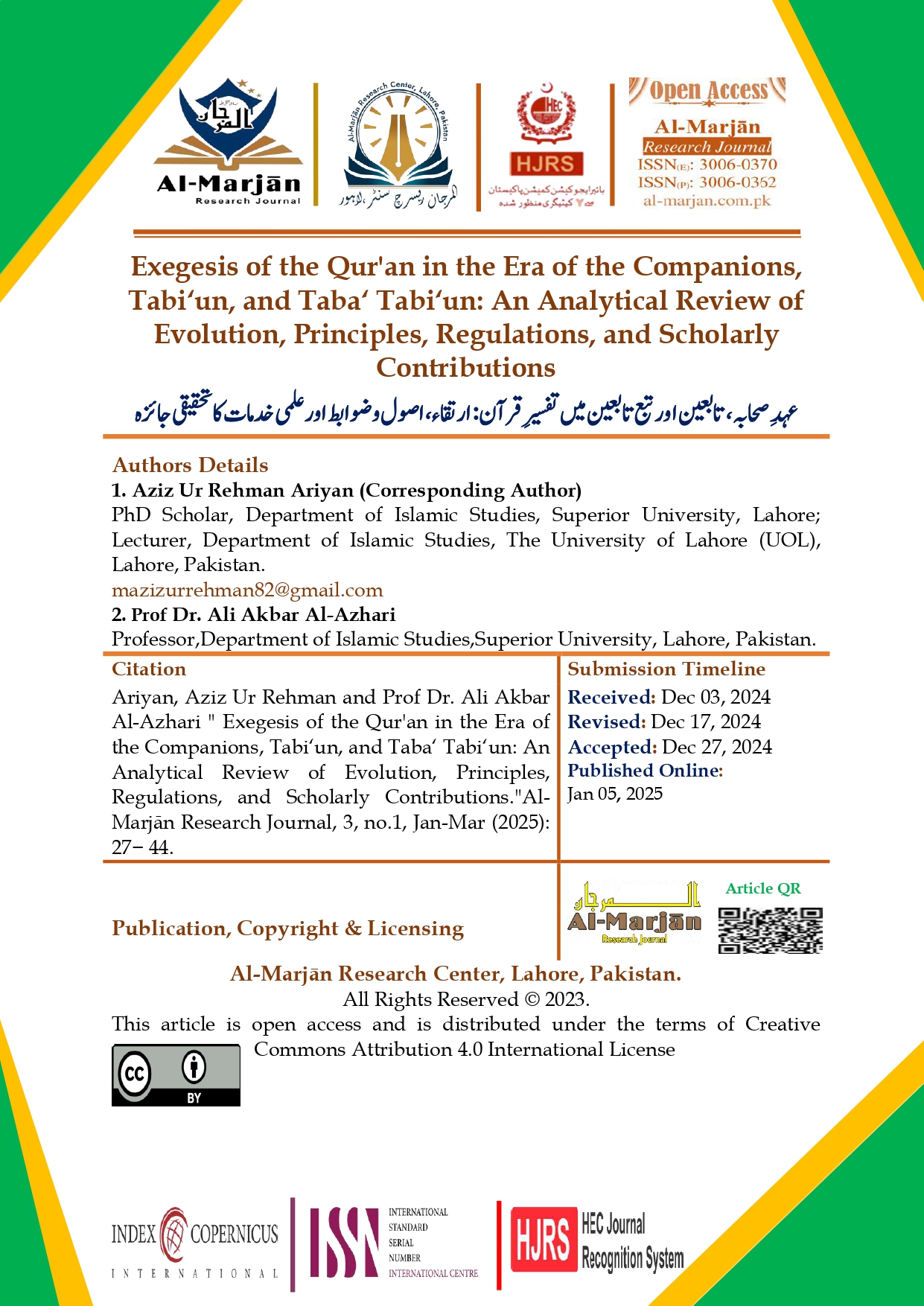Exegesis of the Qur'an in the Era of the Companions, Tabi‘un, and Taba‘ Tabi‘un: An Analytical Review of Evolution, Principles, Regulations, and Scholarly Contributions
عہدِ صحابہ، تابعین اور تبع تابعین میں تفسیرِ قرآن: ارتقاء، اصول و ضوابط اور علمی خدمات کا تحقیقی جائزہ
DOI:
https://doi.org/10.1234/szja7z23Keywords:
Quranic Exegesis, Sahaba, Tabi‘un, Islamic Scholarship, Evolution of Tafsir.Abstract
The study of Qur'anic exegesis (Tafseer) in the early Islamic period, particularly during the eras of the Companions (Sahabah), the Tabi‘un (Successors), and the Taba‘ Tabi‘un (Followers of the Successors), reveals the evolution of interpretative principles and methodologies. The first stage of Qur'anic exegesis, under the Companions, was marked by direct narration from the Prophet Muhammad (PBUH), with explanations relying heavily on the Prophet's sayings and actions. As the Tabi‘un and Taba‘ Tabi‘un followed, the process of exegesis expanded to include deeper engagement with linguistic analysis, context of revelation (Asbab al-Nuzul), and the integration of hadith (Prophetic traditions). The Tabi‘un, like Ibn Abbas, played a pivotal role in enhancing Tafseer by elaborating on the Qur’anic verses with greater attention to historical context, linguistic nuances, and legal implications. Moreover, scholarly contributions from figures such as Qatadah and Mujahid advanced the intellectual and doctrinal understanding of the Qur'an. This review investigates how these foundational phases set the stage for the formalization of Tafseer as a scholarly discipline, laying down the core principles and regulations that have guided Islamic exegesis ever since. The impact of this early scholarship continues to influence modern-day interpretations and understanding of the Qur'an.






































